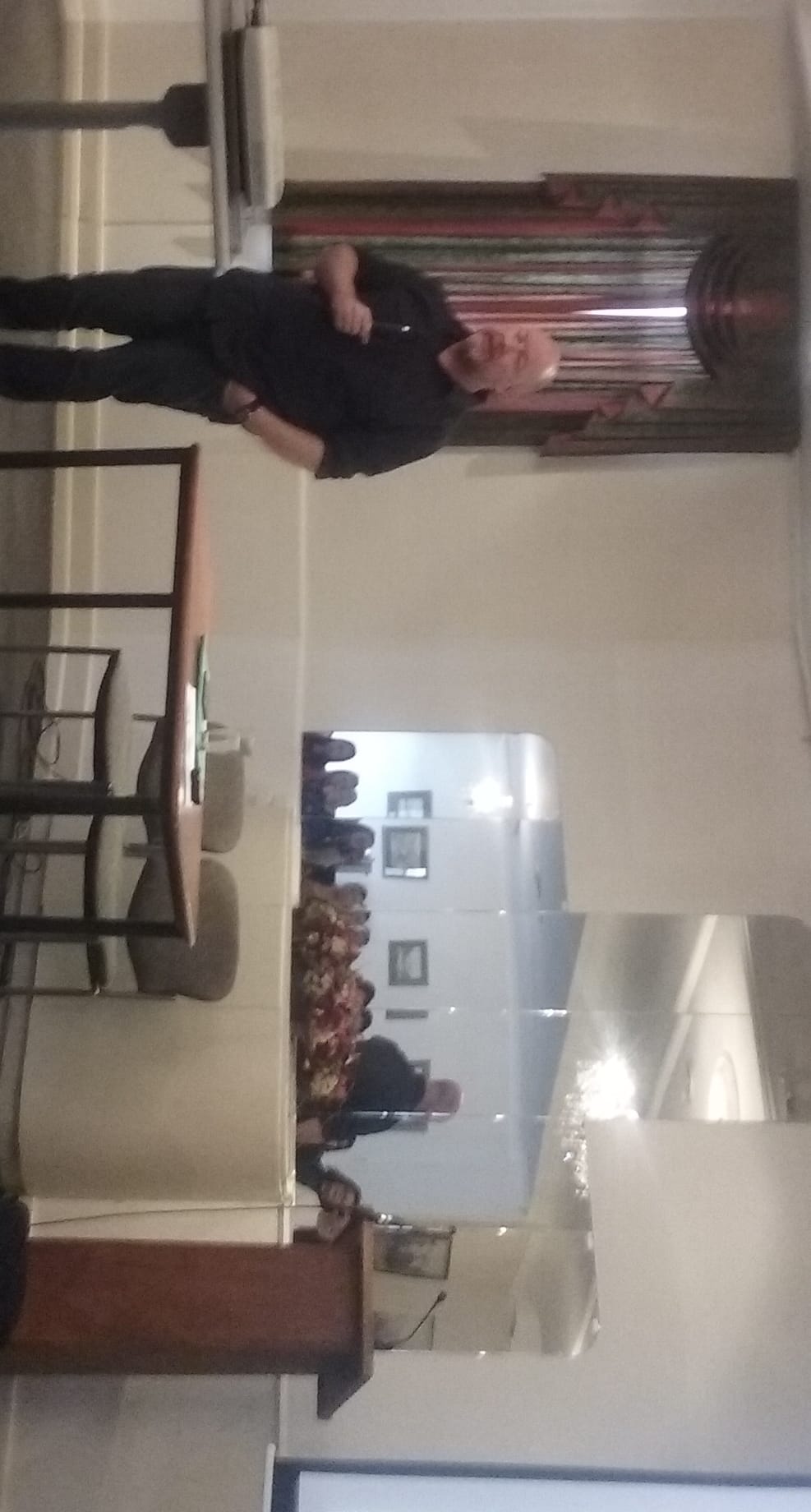Community professionals, including school teachers, guidance counsellors, parents and health practitioners from Invercargill and rural Southland communities attended workshops in schools and other locations in the province, to hear from Victoria University of Wellington lecturer Chris Bowden, who spoke about solution-based focuses around suicide in the community, particularly in the areas of prevention, postvention and education.
The workshops were organised by WellSouth Primary Health Network in conjunction with high school staff, in direct response to recent suicides in Southland and concerns raised by parents and the community, Mr Bowden said.
In response to these workshops, many Invercargill high schools held teacher only days last Friday (June 2), to make staff available for the workshops, including those held at schools in the region.
About 100 people attended the public workshop on Friday (June 2) at Elmwood Garden Function Centre on Dee St.
Mr Bowden a self-described “pracademic” is a passionate professional with more than 20 years of experience working in the mental health sector, he is currently researching adolescent suicide bereavement of those left behind in the terms of losing close friends and family, and fostering youth resiliency.
During his presentation he said it was time for the community and New Zealand’s media, to have a collaborative “solution-based focus” rather than a focus on the issue – as we “know about it, it’s out there,” and it was now time to focus on the needs of the bereaved and the effects on professionals, families and individuals.
There are four key areas:
- Evidence based strategies
- Substance abuse
- Restricting access to harmful options
- Building resiliency
Mr Bowden spoke about these areas with a focus on building resiliency for the hour-long workshop, which included a Q&A section.
He said resiliency included individual, family, friends and community – as suicide affects the whole community.
“Especially a tight-knit community like Invercargill,” he said.
The community approach should include better sharing of information, because a different model was needed, which included improved supervision and information sharing to treat “suicidality”, he said.
“These people have often been seen by multiple providers, systems and groups and have had multiple traumas in their lives. But no-one was sharing that information.”
He said there are things happening with the government and DHB’s towards information sharing, which was a good thing.
He also said it was important for the health sector work force to have the resources and training to give them confidence in what they are doing.
“Some will not agree with my stance, but there should be less awareness raising – it doesn’t help, there is enough information around – we know we have a problem. The awareness and media coverage needs to move to sharing action and knowledge. Teach those dealing with the issue what to do, what to say, and give them help. Give them something tangible.”
“Talking about action – we need more staff, and we need to look after the staff and volunteers we do have, many of who are working unsupervised and unpaid. At the very least the government should be paying for a service they should be providing.”
He went on to say the key group left out of the Government’s recently released “Strategy to Prevent Suicide in New Zealand 2017” draft was the bereaved which research indicated were the highest risk group, along with Maori and men.
The draft outlines a framework for how New Zealand can work together to reduce suicidal behaviour in New Zealand and identifies a set of priority areas for action. It was released on April 12 this year and public submissions close at 11pm on Monday, June 25.
Some of the key assets Chris Bowden said were key for building resiliency were positive relationships, and health and wellbeing that encompassed a person’s mental health, spiritual health, emotional and physical wellbeing.
Mr Bowden said fostering resiliency was about building and developing these internal and external “assets” before they were needed.
“Promoting resiliency involves maintaining daily routines, safety, security, care, having problem-solving skills and meaningful connections.”
Another area of concern was the burnout experienced by mental health professionals and the self-care practises in place for professionals.
He said, the people working in this area, needed to develop their own self-care tools and kit to look after themselves and replenish their “assets to fill them up, so they can keep giving, go back and keep doing it’’.
Chris Bowden, will be in Invercargill on Thursday, June 29 for his Connections Count event for parents. He will talk about supporting vulnerable young people, knowing your teen, recognising warning signs, supporting (tips and strategies), talking to teens and helping teens develop coping skills. Parents can register for tickets by contacting James Hargest College, senior campus on (03) 21 76 129. The free event will be held from 7pm-9pm, and is scheduled to take place at the Invercargill Workingmen’s Club on Esk St in Invercargill, although organisers may look at a bigger venue if interest required it.
In finishing, Invercargill was left out of government-led public-consultation groups on the “Strategy to Prevent Suicide in New Zealand 2017” draft, which were organised to take place throughout New Zealand, the nearest was held in Dunedin, of which many from Invercargill and Southland attended. A Ministry of Health, senior policy analyst, on behalf of the Cross-Government Suicide Working Group, cited “time limits for public consultation and resources budgeted for the work” as barriers to not holding a consultation workshop in Invercargill. They also mentioned that Invercargill was involved in the consultation before the draft was written. A WellSouth Invercargill-based spokesperson confirmed these workshops were held in Gore and Invercargill in March last year, and said information gathered from those workshops were not in the draft document.
To make submissions and read the draft visit: www.health.govt.nz/publication/strategy-prevent-suicide-new-zealand-draft-public-consultation. Submissions close June 25.
Suicide prevention pathways for Invercargill can be found here:

